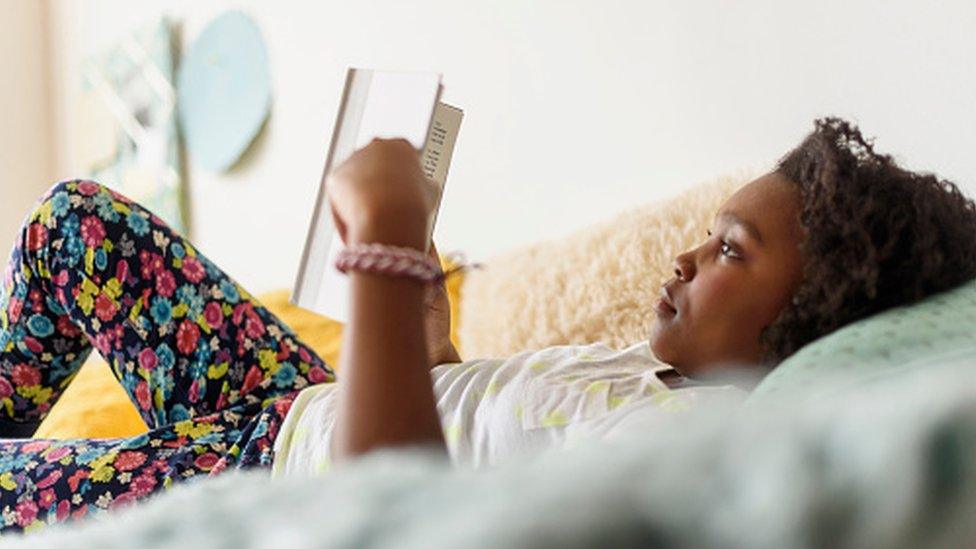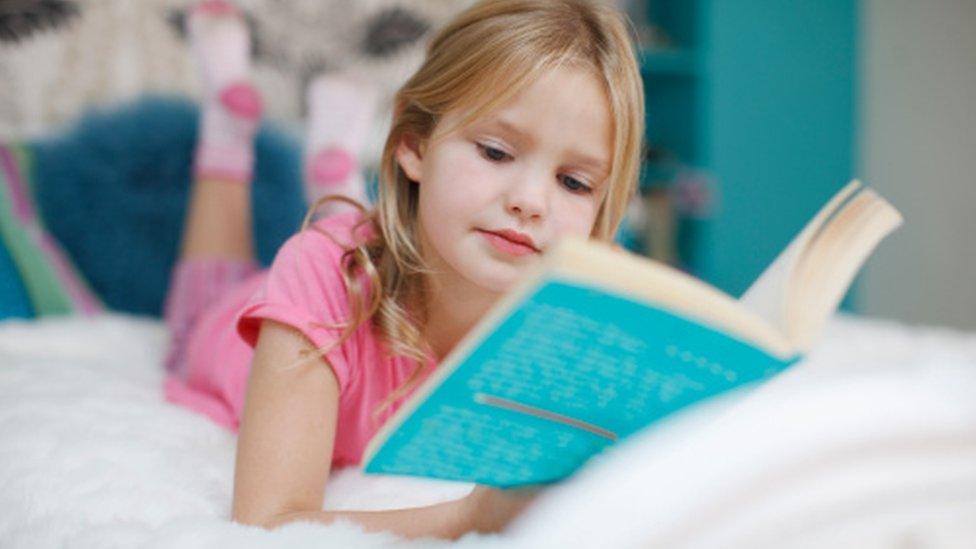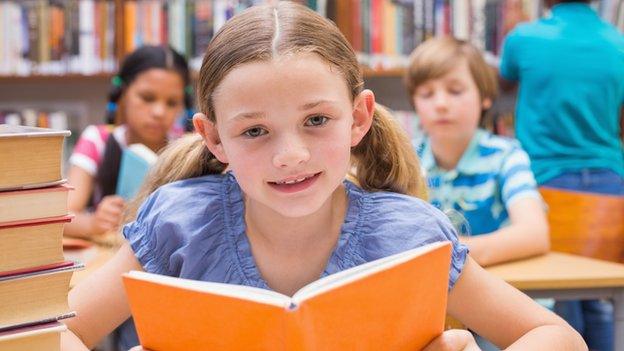Reading for pleasure falls after primary school years
- Published

Other leisure pursuits may take priority
Only one-third of teenage boys in the UK say they enjoy reading, a study by the National Literacy Trust suggests.
The Trust found a significant drop in boys' reading enjoyment between the ages of eight and 16 - from 72% at ages eight-to-11 to 36% at ages 14-16.
Girls' pleasure in picking up a book also dropped off in the teenage years, though not quite as markedly.
At ages eight-to-11, 83% of girls said they enjoyed reading, but this dropped back to 53% at ages 14-16.
Director of the NLT Jonathan Douglas said: "Young people's love of reading steadily declines from the day they leave primary school to the day they leave secondary school - particularly when it comes to boys.
"This is a trend we must reverse."
Mr Douglas said an increasing number of academic, social and leisure priorities, as well as a curriculum that puts more emphasis on homework and study, all played their part.

He said there were lots of ways that parents and teachers could encourage teenagers to read for fun.
"For starters, you can motivate boys to read by tapping in to their interests, such as football, comedy and gaming, and letting them choose what they want to read.
"Remember that everything counts, whether they want to read a fictional story, newspaper, magazine or comic."
Increasing pleasure
Overall though, pleasure in reading appears to be rising steadily among UK children.
The NLT survey of 41,334 children aged eight to 16, carried out at the end of 2016, found nearly six children in 10 (57%) said they enjoyed reading either very much or quite a lot.
"While enjoyment levels had been rather stable between 2005 and 2012, they have been rising steadily since 2013, and in 2016 we recorded the highest percentage of reading enjoyment levels," the report said.
Girls enjoyed getting stuck into a book more than boys, with 65% enjoying reading either very much or a lot compared with 52% of boys.

A child's background was not linked to reading pleasure, as the Trust did not find any difference between children who received free school meals and those who did not.
"It is the first time in 11 years [of conducting this research] that we have not recorded a difference in reading enjoyment by socio-economic background," the report said.
However, there were differences along the lines of ethnicity, with fewer pupils from white backgrounds enjoying reading compared with pupils from mixed or black ethnic backgrounds.
Pupils from Asian backgrounds were most likely to say they enjoyed reading.
- Published20 May 2015
